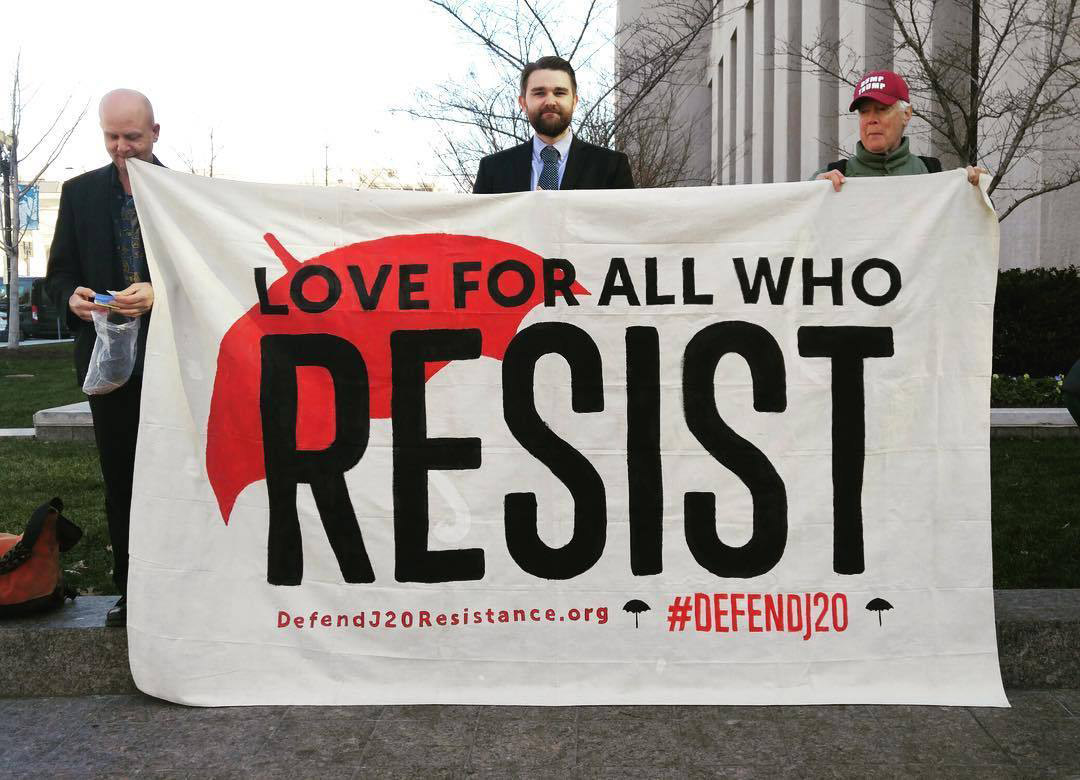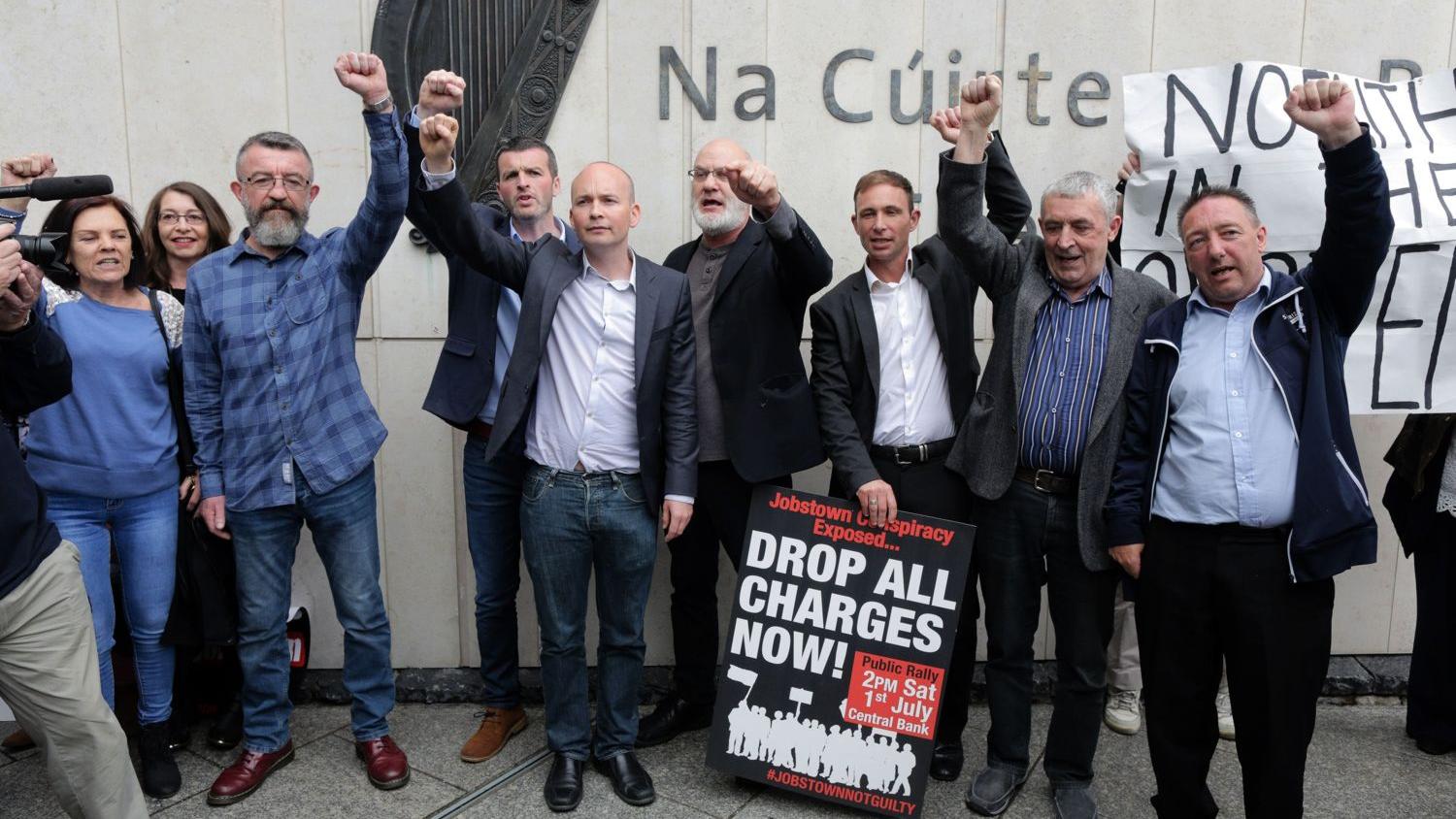Around this time of year, I usually try to do a kind of annual review. This time round, I really don’t feel up to that task, even in the limited terms of “news related to fields that I take an interest in and was easy to find decent English-language coverage of”. (But I did get as far as thinking of the title “a good year for the rose emojis”, so feel free to steal that and run with it if you’re feeling more energetic than I am).
Anyway, I didn’t feel up to putting together a full review of the year, so instead, here’s two quick lists of names and incidents: one of things to celebrate, and one of things to mourn. If you’re into drinking toasts, then there’s a lot of names that you could toast tonight.


On the good news list (and this is quite narrowly focused on prison/court-type news, and will pretty much skip over issues like housing, workplace struggle, gender and the like), there’s an obvious entry from the very end of the year, with the acquittals of the first group of J20 defendants from the protests against Trump’s inauguration; the middle of the year saw a similar, but less high-profile, moment in the form of the acquittals of the Jobstown defendants in Ireland, who were facing ludicrous charges as a result of their involvement in the movement against water charges there.
While the Jobstown case was definitely the most famous set of charges to come out of the Irish water revolt, it was far from the only attempt to criminalise water protesters, as it came in the middle of a host of less high-profile cases against other people who took direct action against water meters. The court ruling that Section 12 obstruction charges couldn’t be brought against people obstructing private companies might not make a snappy headline, but it must have come as a big relief to anyone facing those particular charges.
In another big political trial, Operation Fenix, the Czech government’s attempt to criminalise anarchists there, came to court and collapsed due to a lack of evidence. A few similar results from the courts: in October, Sam and Dan were acquitted of criminal damage charges arising out of their attempts to destroy BAe fighter jets that were intended for use in Saudi Arabia’s war in Yemen, while D Murphy received a suspended sentence after being convicted of making hoax calls to try and stop an arms fair in Cardiff, a case that could have seen her sent to prison. At around the same time, YPG volunteer Josh Walker was acquitted on bizarre charges based on his possession of the Anarchist Cookbook. Fellow YPG volunteer Aiden Aslin is still officially under police investigation, but no longer in bail, which feels like good news of a sort.
One other pleasing result from the UK courts this year was the striking down of tribunal fees – again, perhaps not the most exciting headline, and a workplace tribunal is far from being the most desirable terrain to fight on, but if you do find yourself in a situation where it seems like the best option, it’ll be a big relief to not get stuck with a thousand-pound bill for it.
Even among those who have actually ended up incarcerated, there have been some pieces of good news this year: as well as various rebels getting released from solitary confinement, and the authorities dropping their ridiculous attempts to give Herman Bell extra disciplinary charges on top of having brutally attacked him, there were also a number of people who got free: Robert Stephenson (not the guy who built a bunch of trains or the Treasure Island guy, a different one) completed his sentence after being convicted of looting during the Ferguson uprising, anarchist and IWW member Josh “Zero” Cartrette managed to get his conviction overturned while in the middle of harsh repression as a result of his involvement in prison strike organising, Swedish antifascist Joel Almgren was released, along with a few other Swedish antifascists who’d been given shorter sentences, Kara Wild was released after having spent a year and a half in a men’s prison for her participation in the revolt against the Loi de Travail in Paris, Dane Powell became both the first person to be imprisoned for protesting against Trump and then the first person to get released, and Fabio Vettorel was finally released on bail after spending months in pre-trial detention for his part in the Hamburg G20 protests, although his actual trial is still ahead.

Now for the less cheerful list of names to remember: this year saw uncounted lives lost to climate change-related disasters, to massacres carried out by Islamist terrorists or just by angry, alienated men with guns, killed by council cost-cutting at Grenfell or shot down by the police. In terms of individual names, this year racist/nazi violence in the US claimed the lives of Heather Heyer in Charlottesville (who has now been buried in a secret grave due to the risk of vandalism), Taliesin Myrddin Namkai-Meche and Ricky Best in Portland, Richard Collins III in Maryland, Timothy Caughman in New York, Srinivas Kuchibhotla in Kansas City (his widow then had to fight against the threat of deportation), and Scott Fricker and Buckley Kuhn-Fricker in Virginia – a list that could easily have also featured the names of Hex in Seattle, several people in Gainesville, or have become unimaginably long if Atomwaffen had been able to finish building their bomb. And just while writing this, I’ve stumbled on yet another case that seems to fall into the grey area between nazi terror and a “normal” nihilistic/misanthropic killing spree.
Elsewhere, I want to pay tribute to Santiago Maldonado, anarchist comrade disappeared by the Argentine state, and Nathan Hose, who took his own life while awaiting trial on charges arising from an anti-Trump protest in New Orleans, charges that were later dropped against his co-defendants. If I spend a lot of time talking about prison/court-related news, that’s because the criminal justice system deliberately attempts to ruin people’s lives, and it doesn’t always have to get convictions to be successful.


Finally, and closest to home, I also want to remember the life of Mark Fisher, who we lost at the start of the year. It was a dark day for all those of us who have our own struggles with mental health issues, which, let’s be honest, is pretty much all of us. In the wake of his death, both some of his detractors and some of his supposed fans effectively narrowed down his legacy to just being about one particularly divisive and controversial piece of writing, a piece of writing which has now completely escaped its original context and become a free-floating signal for “why people who disagree with me must be bad and wrong”.
It’s hard to imagine what the poor man would have made of the news that Nick Cohen managed to cram in an approving citation to his article, an argument which essentially pinned all its hopes on the possibility of something like Corbynism emerging, into one of his most recent hatchet jobs against Corbynism… anyway, I could write a lot about the way that the figure of that article gets deployed to support arguments that are very far removed from Fisher’s original case that the Ipswich People’s Assembly was good and it was cool when Russell Brand talked about revolution, and perhaps one day I will, but for now I just want to encourage people not to go along with the flattening out of Fisher’s entire life and work into just that one article. It’s up to you what new years’ resolutions to make, if you make any at all, but if you do want to make some, you could do a lot worse than resolving to actually read more Mark Fisher.
Advertisements Share this:




